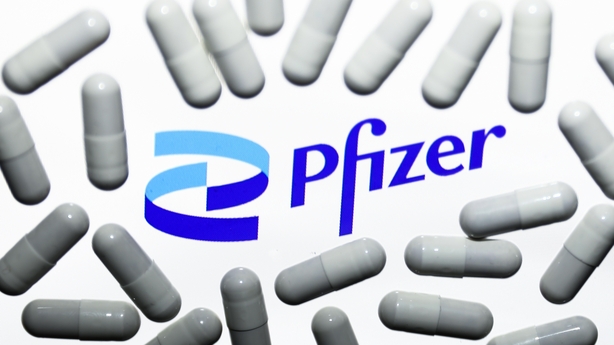Pfizer, BioNTech and Moderna are making combined profits of $65,000 every minute from their highly successful Covid-19 vaccines while the world's poorest countries remain largely unvaccinated, according to a new analysis.
The companies have sold the vast majority of their doses to rich countries, leaving low-income nations in the lurch, said the People's Vaccine Alliance (PVA), a coalition campaigning for wider access to Covid vaccines, which based its calculations on the firms' own earning reports.
The Alliance estimates that the trio will make pre-tax profits of $34 billion this year between them, which works out to over $1,000 a second, $65,000 a minute or $93.5 million a day.
"It is obscene that just a few companies are making millions of dollars in profit every single hour, while just 2% of people in low-income countries have been fully vaccinated against coronavirus," Maaza Seyoum of the African Alliance and People's Vaccine Alliance Africa said.
"Pfizer, BioNTech and Moderna have used their monopolies to prioritise the most profitable contracts with the richest governments, leaving low-income countries out in the cold."
Pfizer and BioNTech have delivered less than 1% of their total supplies to low-income countries while Moderna has delivered just 0.2%, the PVA said.
Currently, 98% of people in low-income countries have not been fully vaccinated.
The three companies' actions are in contrast to AstraZeneca and Johnson & Johnson, which provided their vaccines on a not-for-profit basis, though both have announced they foresee ending this arrangement in future as the pandemic winds down.
PVA said that despite receiving public funding of more than $8 billion, Pfizer, BioNTech and Moderna have refused calls to transfer vaccine technology to producers in low- and middle-income countries via the World Health Organization, "a move that could increase global supply, drive down prices and save millions of lives."
"In Moderna's case, this is despite explicit pressure from the White House and requests from the WHO that the company collaborate in and help accelerate its plan to replicate the Moderna vaccine for wider production at its mRNA hub in South Africa," the group said.
While Pfizer CEO Albert Bourla has dismissed technology transfer as "dangerous nonsense," the WHO's decision to grant emergency use approval to the Indian-developed Covaxin earlier this month proves that developing countries have the capacity and expertise, PVA added.
PVA, whose 80 members include the African Alliance, Global Justice Now, Oxfam, and UNAIDS, is calling for pharmaceutical corporations to immediately suspend intellectual property rights for COVID vaccines by agreeing to a proposed waiver of World Trade Organisation's TRIPS agreement.
More than 100 nations, including the United States, back that move, but it is being blocked by rich countries including the UK and Germany.
Pfizer to allow generic versions of its Covid-19 pill
Pfizer has said it will allow generic manufacturers to supply its experimental antivaral Covid-19 pill to 95 low- and middle-income countries through a licensing agreement with international public health group Medicines Patent Pool (MPP).
The voluntary licensing agreement between Pfizer and the MPP will allow the United Nations-backed group to grant sub-licenses to qualified generic drug manufacturers to make their own versions of PF-07321332.
Pfizer will sell the pills it manufactures under the brand name Paxlovid.
Pfizer, which also makes one of the mostly widely used Covid-19 vaccines, has said the pill cut the chance of hospitalisation or death for adults at risk of severe disease by 89% in its clinical trial.
The drug will be used in combination with ritonavir, an HIV drug that is already available generically.
Pfizer's licensing deal follows a similar arrangement by rival Merck for generic manufacturing of its Covid-19 treatment.

The deals are unusual arrangements that acknowledge the dire need for effective treatments as well as the pressure drugmakers are under to make their life saving drugs accessible at very low costs.
The 95 countries in the license agreement cover around 53% of the world's population and include all low- and lower-middle-income countries and some upper-middle-income countries in Sub-Saharan Africa.
They also include countries that have transitioned from lower-middle to upper-middle-income status in the past five years, Pfizer and the MPP said.
Pfizer will waive royalties on sales in low-income countries. It will also waive them in the other countries covered by the agreement as long as Covid-19 remains classified as a public health emergency of international concern by the World Health Organization.
The company has said it expects to manufacture 180,000 treatment courses by the end of next month and at least 50 million courses by the end of 2022.
Merck has license agreements for its Covid-19 pill, molnupiravir, in over 100 countries. Still, some international health officials said even that is not enough for the medicine to reach many in low- and middle-income countries in large enough numbers.
Meanwhile, Russia has granted approval for Pfizer to conduct clinical trials in Russia of its antiviral pill, a state registry of medicines showed.
The trials conducted on 90 people located in home-like conditions with someone who has symptomatic Covid-19 began on 12 November and will continue until March 2023, the registry's website said.

